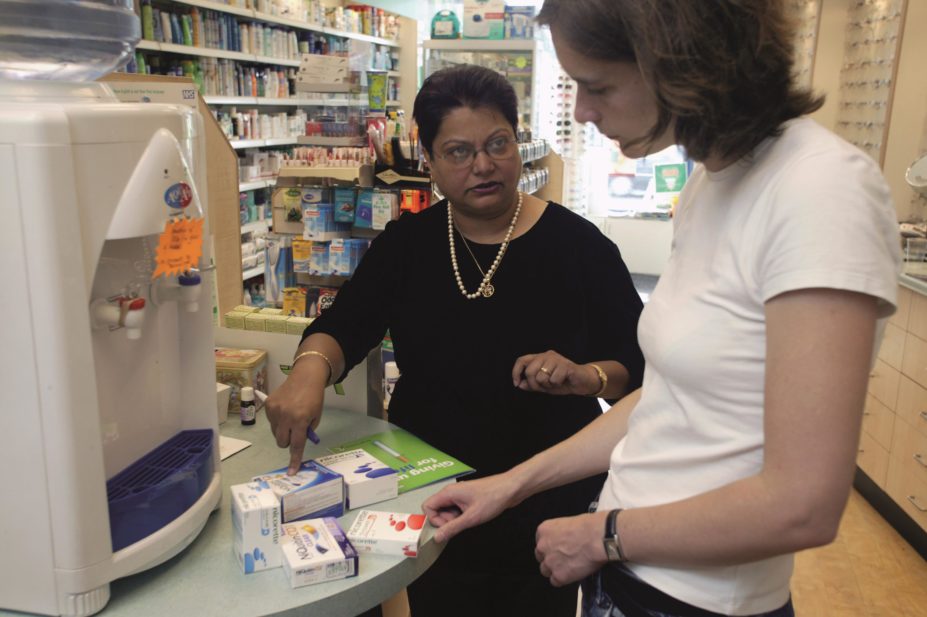
Photofusion Picture Library / Alamy
Greater use of community pharmacy patient group directions (PGDs), minor ailment services and pharmacist input into urgent care units could “sustainably reduce” pressures on out-of-hours services in Scotland, according to a coalition of pharmacy bodies.
The Royal Pharmaceutical Society (RPS) Scotland, Community Pharmacy Scotland and NHS Scotland Directors of Pharmacy said the profession had a “significant” part to play in addressing the challenges facing out-of-hours care in the country.
In a joint submission to the National Primary Care Out of Hours Review, launched by the Scottish government in January 2015, they urged ministers to support an enhanced role for pharmacists and adequately resource additional community pharmacy services.
Sir Lewis Ritchie, the James Mackenzie professor of general practice at the University of Aberdeen, is leading the review, which will examine the capability of Scotland’s out-of-hours services to face the challenges of an ageing population amid the ongoing integration of health and social care.
The three pharmacy organisations published 15 recommendations they say “would address problems that are reported by pharmacists as multiple daily frustrations and inefficiencies for them, GPs, out-of-hours services and most importantly, for patients”.
National pharmacy PGDs should be developed to treat uncomplicated urinary tract infections in women, shingles and impetigo, the organisations said. They propose identifying up to five further conditions that pharmacist prescribers could manage through PGDs in future. Th
ey also called for stronger guidance on and better use of the national unscheduled care PGD for repeat medicines and appliances.
Wider use of minor ailment services
Minor ailment services — currently provided to 917,000 patients — should be universally accessible to all patients in Scotland, they said. Evidence suggests more than 10% of GP visits and 5% of A&E attendances could have been managed by community pharmacy. Publicity campaigns would raise awareness of the services among patients and staff at GP practices, A&E
and out-of-hours services, and more referrals to community pharmacy minor ailment services should be encouraged where appropriate.
They outlined a role for pharmacist prescribers in chronic disease management, addressing medication issues and arranging care planning in GP practices, similar to a scheme being piloted in England. This would avoid some patients requiring support from out-of-hours services, they said. There could also be roles for pharmacists in NHS 24 and for prescribers in out-of-hours services and local A&E departments, alleviating pressures on other staff and referring patients to community pharmacy.
The inability of pharmacist prescribers to print prescriptions from GP systems — unlike nurse prescribers — remains a “significant barrier” and should be enabled “urgently”, they said.
Alex MacKinnon, RPS Scotland director, welcomes the co
ordinated response to the review from pharmacy bodies in Scotland. “I hope that pharmacy’s input into the review will be embraced by the Scottish government and that community pharmacists’ well-recognised contribution will be maximised further and appropriately res
ourced to help alleviate some of the pressures in the NHS,” he said.
‘Enhanced role’
Harry McQuillan, chief executive of Community Pharmacy Scotland, says the role for pharmacists should be “significantly strengthened” in primary care. “All parties agreed that the community pharmacy network could build on what it currently does to support patient care, through further enhancing its role in the context of this review,” he says.
Gail Caldwell, chair of NHS Scotland Directors of Pharmacy group, says: “Pharmacists are already playing an important role in providing support and advice to patients and their families and we welcome opportunities for them to use their knowledge, skills and expertise to support the future development of out-of-hours healthcare across the country.”
Other recommendations include strengthening care pathways between NHS 24 and community pharmacy and extended pharmacy opening times on weekends, arranged in alignment with out-of-hours services.
Expanding access to the emergency care summary or key information summary would improve clinical decision-making by community pharmacists and reduce the need to refer to other services, they said, while community pharmacy access to GP systems would help the two professions share patient information more easily.
In addition, they call for better use of pharmacists with clinical skills in managing minor illness to provide more enhanced services; more community pharmacist involvement in anticipatory care planning; and improved clinical handover between services.
The review group is due to report on its findings later in 2015.

